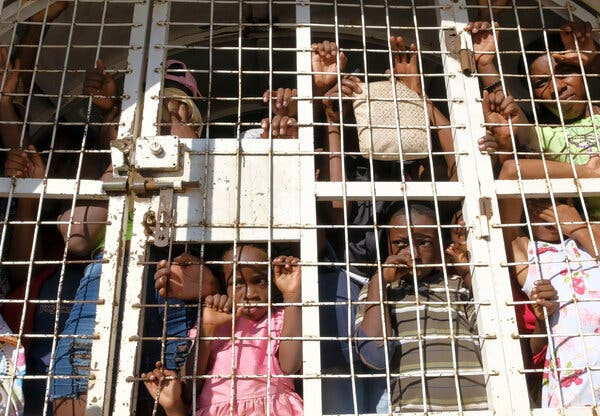
Cage-like trucks fitted with iron bars that appear designed to carry livestock line up every morning at the border between Haiti and the Dominican Republic.
The vehicles at the Elías Piña border crossing are not loaded with cattle, but with Haitians being deported by the Dominican immigration authorities. They include young men, pregnant women, unaccompanied children and some people who have never lived in Haiti.
Since October, more than 71,000 people have been deported to Haiti.
Rose-Mieline Florvil, 24, who lived in the Dominican Republic for less than a year, said immigration agents recently raided her house in Santiago, in the northern part of the country, one day before dawn and said something along the lines of “Black woman, come here.”
“I couldn’t run, because I’m pregnant,” she said.
The extraordinary wave of deportations — Dominican officials say the goal is 10,000 per week — reflects a stringent new immigration policy by a country with a complicated and racially charged history with Haiti.
The two nations share the island of Hispaniola, and the Dominican Republic, the far more prosperous of the two, has sounded increasingly loud alarms about shouldering the burden of what experts say is a failing state next door.
